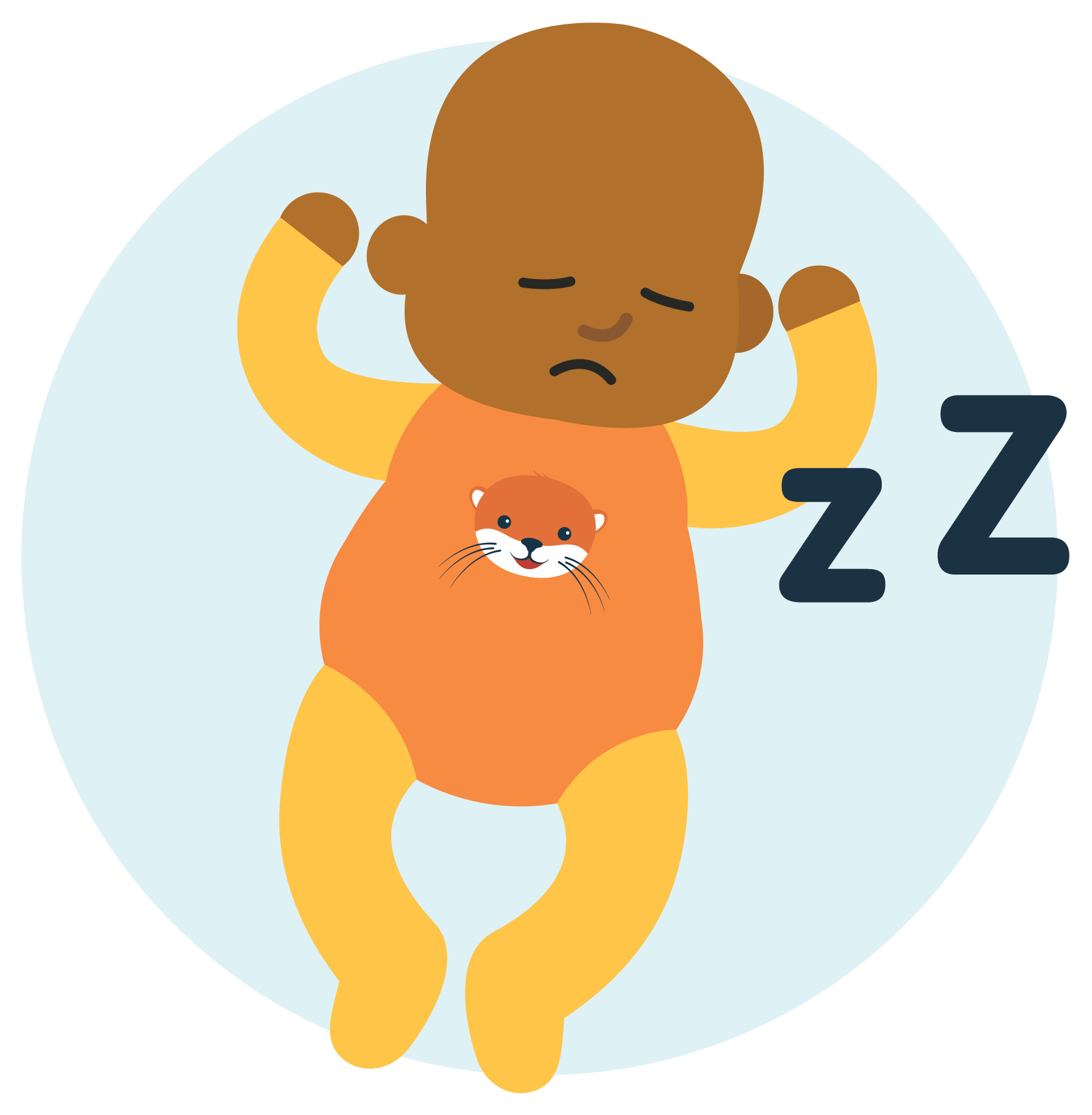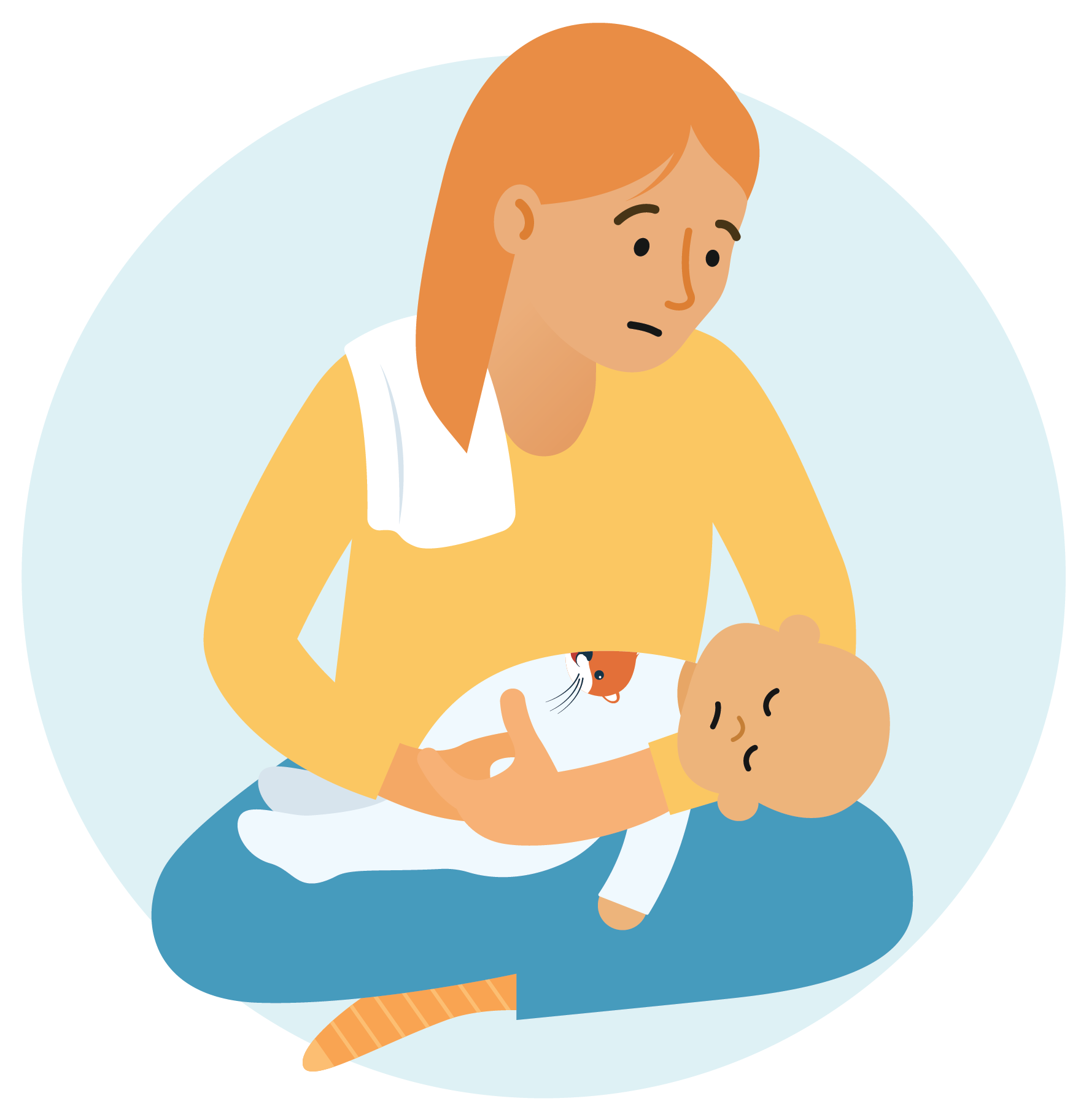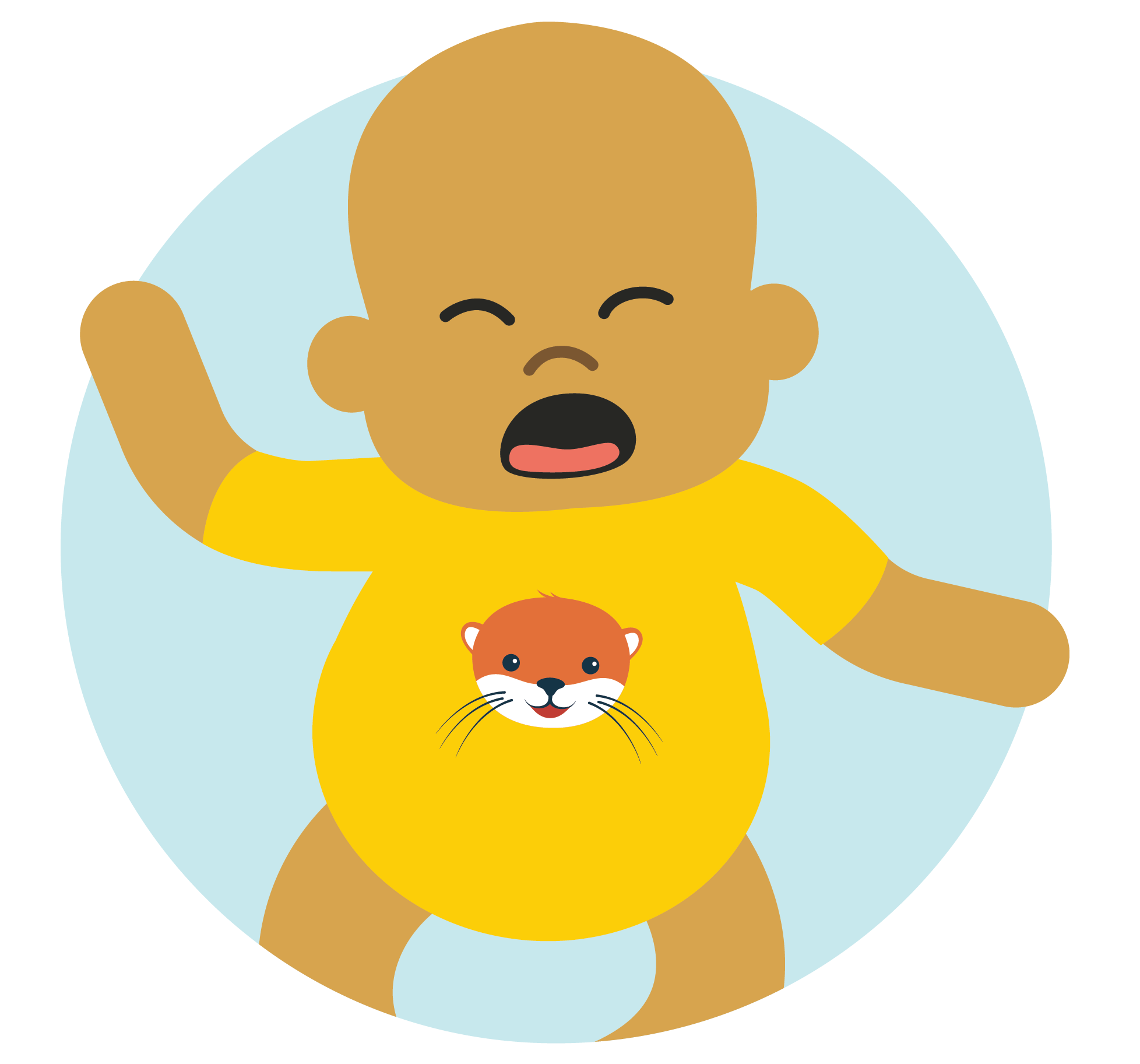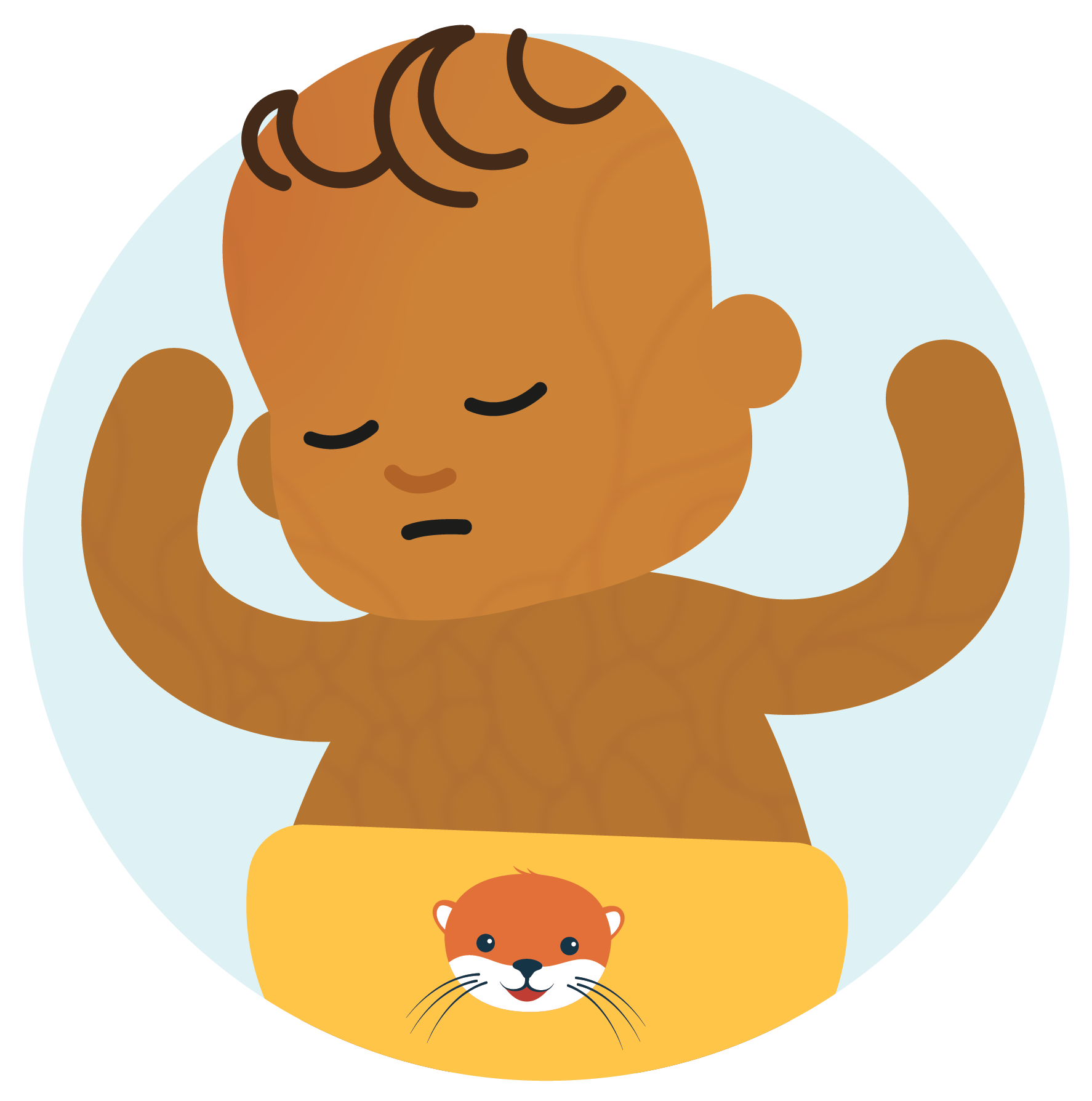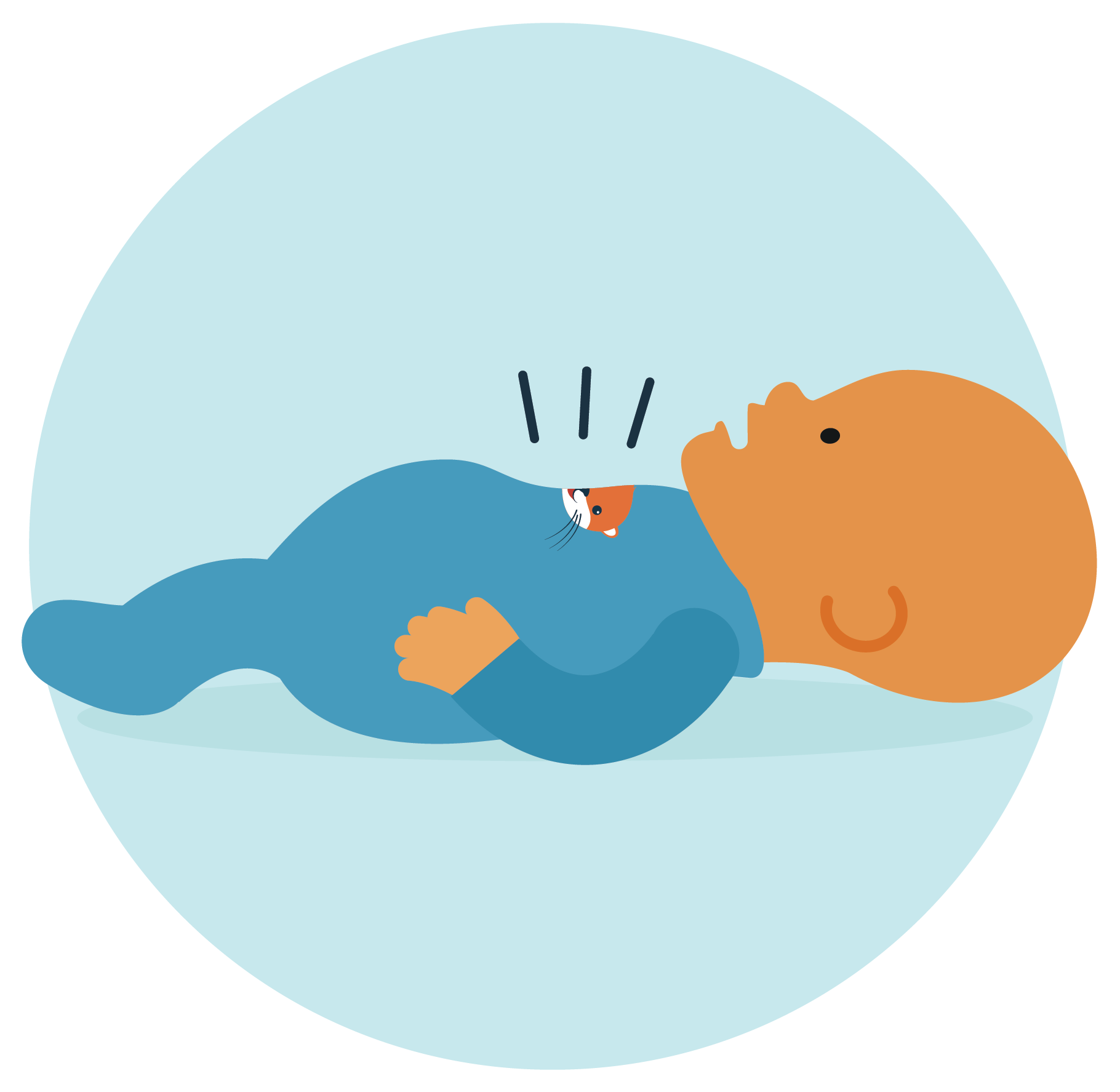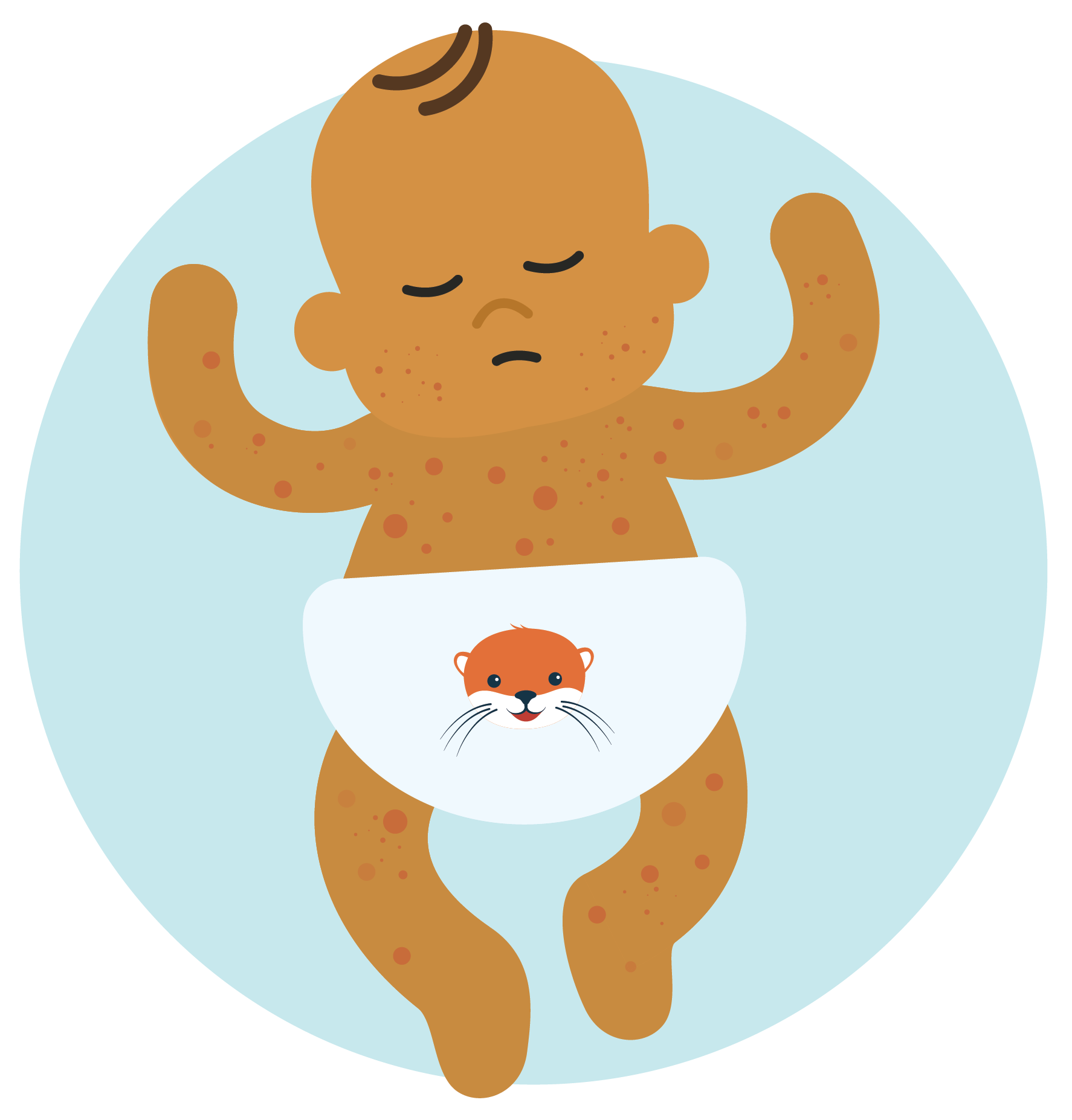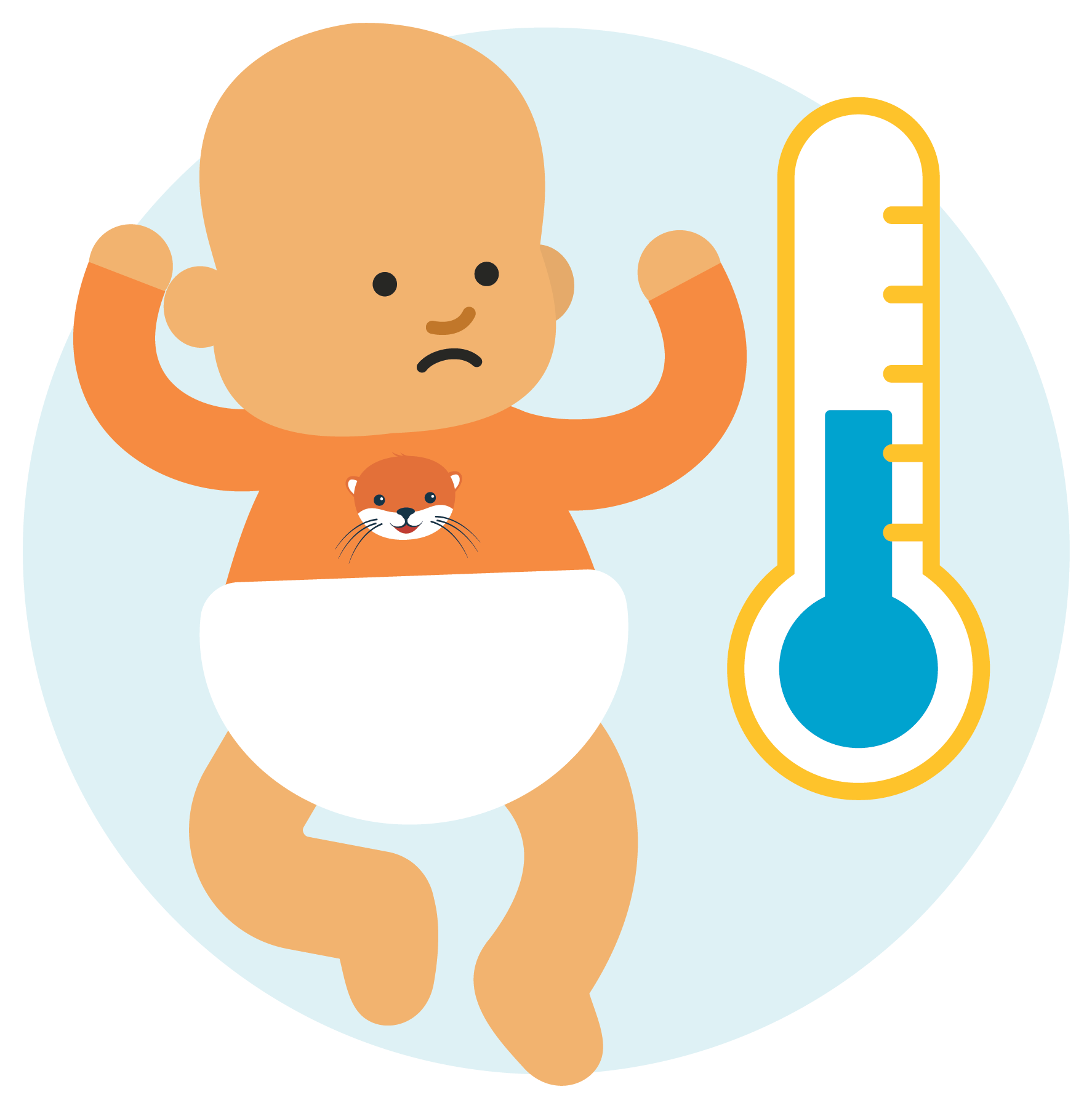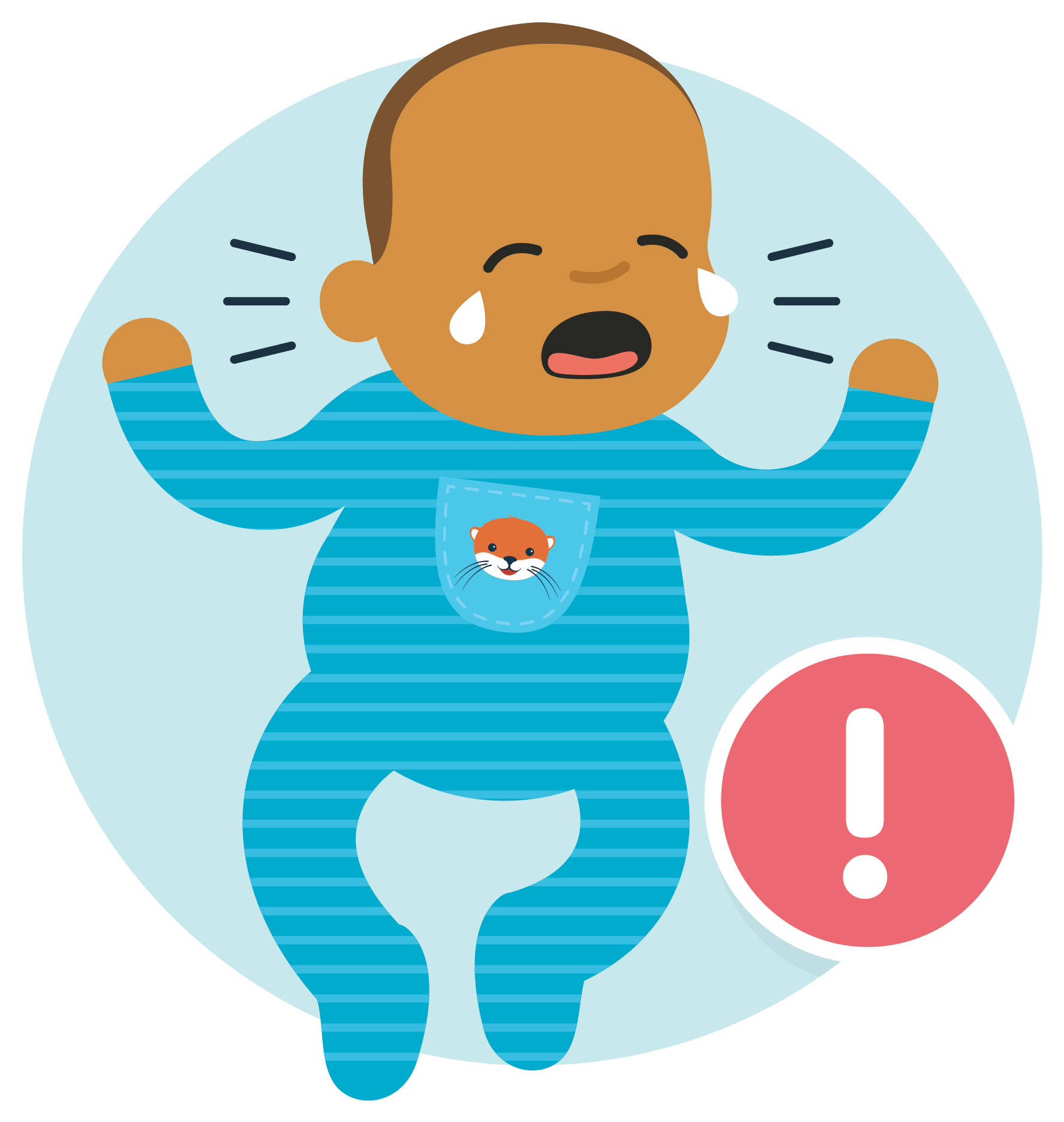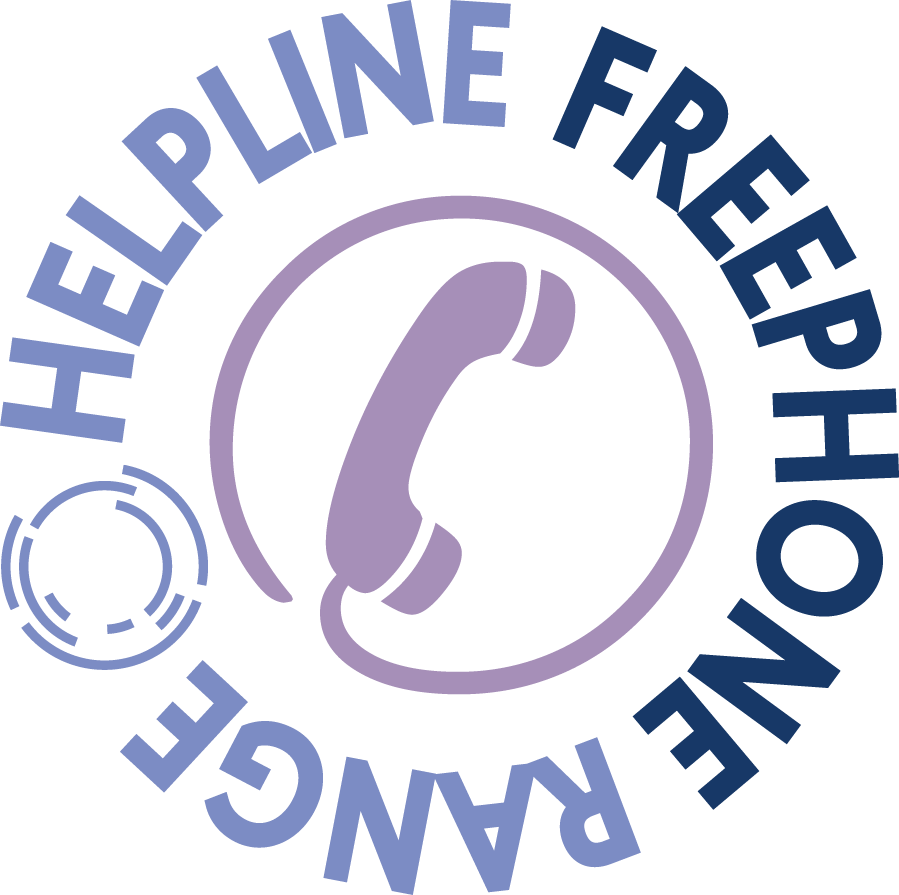Why do we need to keep babies safe from infection?
It is very important to try and keep babies safe from infection, particularly in the first few weeks of life. Babies have immature immune systems, which means that they are particularly at risk from infections. Infections that may be mild in older children or adults can be life-threatening for babies.
There are some key things that everyone can do to reduce the risk of serious infections in babies. It’s important to follow THANKS – Think Hands And No KisseS
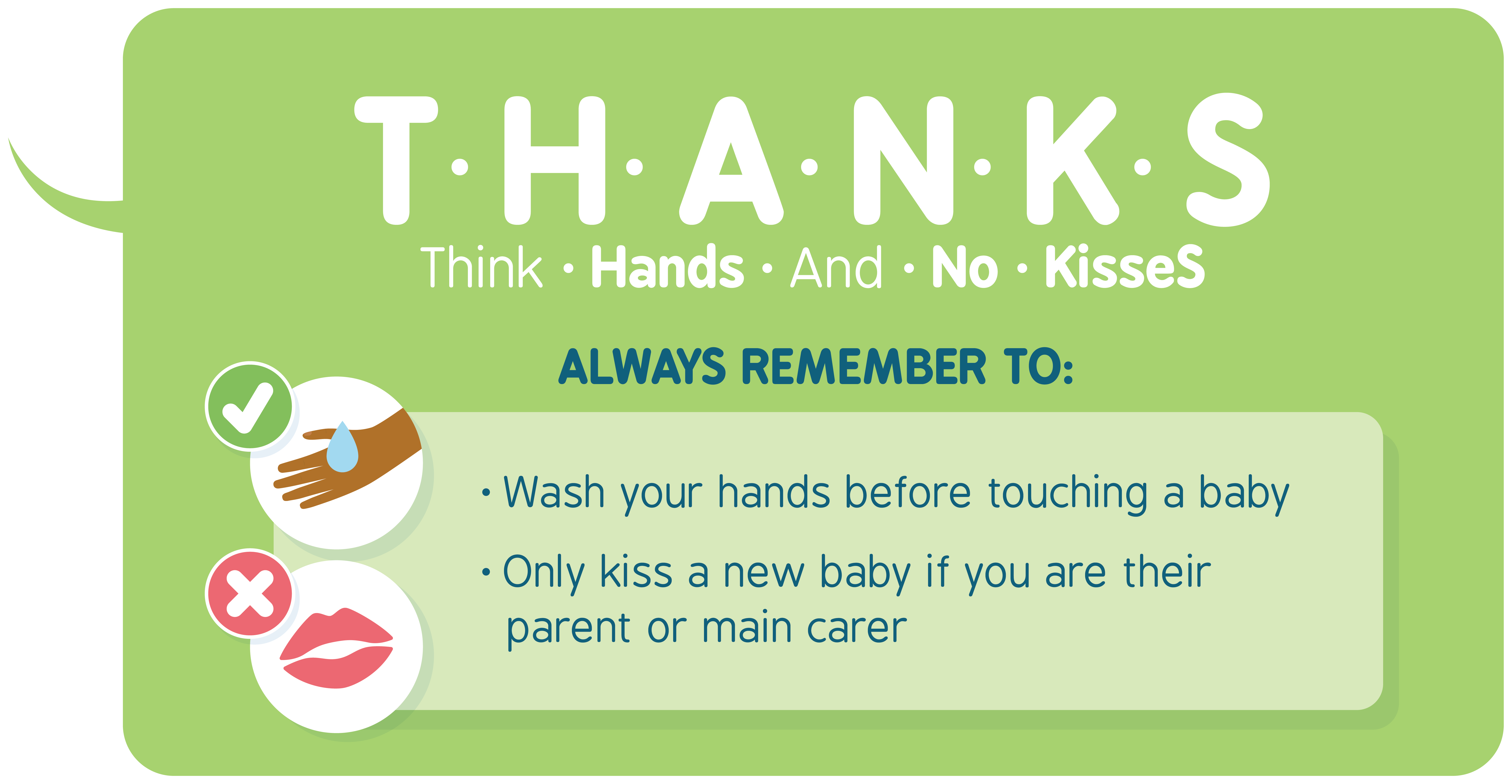
It’s also important not to visit a baby if you are ill or have recently been ill. This includes active cold sores as well as diarrhoea and vomiting illnesses. Staying away until you are fully recovered is a key part of keeping babies safe from infection.
Spotting infections in babies
It can be difficult to tell when your baby has an infection as infections can cause lots of different signs and symptoms, and babies can’t say how they feel. Trust your instincts and, if you feel that something is ‘not quite right’ with your baby, seek help from your midwife, health visitor, GP, NHS 111 or visit an emergency department if you are very worried.
Your baby might have a serious infection if they:
|
are difficult to wake |
appear floppy |
are irritable and won’t settle |
have a mottled or blotchy appearance |
|
have difficulty breathing or are breathing unusually such as: fast, noisily, ‘sucking in’ under the ribs, grunting, wheezing |
have a rash or sores / blisters on their skin, eye, inside of mouth or around their tummy button |
have a temperature above 38°C or below 36°C, or their body is cold to the touch |
have a high-pitched or abnormal cry |
You should also keep an eye on your baby’s wet nappies and feeding and speak to a health professional if they have had fewer than 2-3 wet nappies in a 24-hour period.
Remember, you know your baby best so you are well placed to notice if there are changes in their wellbeing or behaviour.
It is important to get help if you are concerned that your baby might have an infection.
Key information to tell your health professional
Taking steps to prevent and keep babies safe from infection helps a lot, but it’s also important to be aware of any exposures in pregnancy or after your baby was born that might have increased their risk of infection.
If you think your baby might have an infection, it is important that health professionals have all the information they need to help them treat your baby.
You will need to let them know if any of the following apply.
🔸 The person who gave birth:
- Had any illnesses during pregnancy such as flu-like symptoms
- Missed any routine vaccinations in pregnancy, such as COVID-19, RSV, influenza or pertussis vaccines
- Developed chicken pox 7 days before or after baby’s birth
- Has blisters or a rash on their breast/nipple (if breastfeeding)
- Has ever had a genital herpes infection, even if they don’t currently have symptoms
- Had sexual contact with a new partner during pregnancy, particularly in the third trimester
- Experienced symptoms of sexually transmitted disease during pregnancy
- Travelled overseas during pregnancy
🔸 You or your baby:
- Have tested positive for Group B Strep
🔸 Your baby has had contact with anyone who:
- Had chicken pox
- Had an active cold sore
Make sure that you tell the health professionals caring for your baby if any of these apply to you, even if they don’t ask. Having this information may give them clues as to why your baby is unwell.
Useful links for spotting and preventing infections
Download our infection prevention posters and red book insert from the bottom of this page. These resources are free to use and have been created in consultation with BPAIIG (The British Paediatric Allergy Immunity & Infection Group).
Here are some other links you may find useful:
🟡 Neonatal Herpes
Click here for information about Neonatal Herpes
Herpes simplex virus infection in a newborn baby is called neonatal herpes or neonatal HSV. In young babies who have immature immune systems, HSV infections can spread rapidly if left untreated, causing irreversible cell damage which can lead to permanent disability or death.
Early recognition and prompt treatment with antiviral medication is essential to save the baby’s life.
Herpes simplex virus (HSV) is a very common and highly contagious virus which usually spreads from person to person by direct contact. HSV is carried by around 70% of adults in the UK and many carriers have no symptoms at all but in others it can lead to cold sores, blisters on the finger (called herpetic whitlow) or genital ulcers/sores. Infections on other areas of the body including the breast are also possible, but less common.
In older children and adults with normal immune systems, HSV infections are not normally serious and will get better without treatment but if left untreated in young babies, it is life-threatening.
More info here:
🟡 Group B Strep
Click here for information about Group B Strep
Group B Strep is one of the many bacteria that normally live in our bodies and usually cause no harm. It can be passed from person to person through direct physical contact, however it is not a sexually transmitted disease.
Testing for Group B Strep is not routinely offered to all pregnant women in the UK, often it is found by chance after a swab or urine test for another reason. Even if you carry Group B Strep, it is unlikely that your baby will develop this infection, however the risk of your baby becoming unwell with a Group B Strep infection is increased if your baby is born pre-term, if you have signs of infection in labour or if your labour hasn’t started more than 24 hours after your waters break. Most early-onset Group B Strep infections can be prevented by antibiotics during labour. You should be offered these if you have tested positive for Group B Strep in pregnancy or if you have previously had a baby affected by a Group B Strep infection.
More info here:
🟡 Respiratory Syncytial Virus (RSV)
Click here for information about RSV
Respiratory Syncytial Virus (RSV) is a common virus that infects almost all children in the first two years of life. The virus is very contagious and produces cold-like symptoms and often parents will not know that the symptoms (runny or blocked nose, cough, sneezing, and high temperature) are caused by RSV. The symptoms usually last between one and three weeks; if the lungs are affected, the symptoms will develop or get worse and can lead to bronchiolitis and viral pneumonia. RSV can cause critical illness, particularly in babies who are born premature, sick, or have underlying conditions. However, the risk of severe infection decreases as a baby gets older.
More info here:
🟡 Healthier Together
Click here for information about Healthier Together
The Healthier Together programme involves patients and healthcare professionals working together to improve how local healthcare is delivered. Each website, tailored for your specific region, provides advice for parents, young people and pregnant women, and clinical resources to support healthcare professionals – which means that your child is likely to receive consistently high-quality care, irrespective of which healthcare professional they see.
More info here:
🟡 Baby Check App
Click here for information about our free app
Baby Check is a FREE and newly-updated app from The Lullaby Trust. It features 17 simple checks that parents can do if their baby is showing signs of illness. Each check tests for a different symptom and when completed, the app lets parents know whether their baby needs to see a doctor or health professional.
More info here:
Download for FREE here:
🟡 Respiratory illnesses
Click here for information about respiratory illnesses
The Institute of Health Visiting have created some resources following the increase in respiratory illnesses such as Bronchiolitis, Strep A and Flu. The resources are in accessible formats and are designed to help you to decide when to seek further help from your GP, health visitor, pharmacist or local emergency department.
Access here:
The Lullaby Trust and Kit Tarka Foundation
Click here to read about The Lullaby Trust and Kit Tarka Foundation
You may have spotted an adorable little otter on our resources for preventing and spotting infections in babies. This very special otter symbolises the work of the Kit Tarka Foundation, whose guidance has been developed to create these important resources.
Kit Tarka Foundation was established in 2018 by Sarah and James de Malplaquet after their son Kit Tarka died at just 13 days old.

Baby Kit
Kit’s story
After discovering that Kit had died from neonatal herpes (the cold sore virus in babies), Sarah set out to learn as much as she could about this devastating disease. She was astonished by the lack of awareness amongst the general public and, most disturbingly, by the huge gaps in knowledge of symptoms and best practice in the UK medical profession. It soon became clear that Kit’s death had been preventable and that the lack of knowledge around the transmission, recognition and treatment of the virus had led to his tragic and untimely death.
You can tap here to read Kit’s story
Deepening understanding around keeping babies safe from infection
After contacting several charities to see if they could facilitate long overdue research into neonatal herpes but being told it was not within the scope of any of them, Sarah and James decided they needed to establish their own charity to help prevent more tragedies like Kit’s. To that end, Kit Tarka Foundation was launched with a mission to prevent newborn baby deaths through research and education, and deepen understanding around how to keep babies safe from infection.
With the sad news that Kit Tarka Foundation was winding down its activities in 2023, we at The Lullaby Trust felt that the work of this wonderful charity fit perfectly with our own mission of ‘saving more babies lives’. Subsequently, the fantastic work of the Kit Tarka Foundation has been further developed with a team of infant infection specialists at The Lullaby Trust to widen the scope and cover a greater range of infant infections, with an ultimate goal to ensure this life saving information reaches as may families as possible.
Why an otter?
Kit was given the middle name Tarka for Sarah’s love of swimming and James’ love of otters. He was their little otter who never got to swim. They noticed from the clothes that Kit wore in his time with them that they also really liked the colour orange and it became his colour. Friends and family wore orange flowers in remembrance of Kit at his funeral. In memory of Kit and to recognise the outstanding work of the Kit Tarka Foundation, with kind permission we are happy to share that this little otter has joined us at The Lullaby Trust to continue to help keep babies safe from infections.

Please note, for simplicity of language, the information on this page may include the term ‘woman’ or ‘mother’ and this should be taken to include people who do not identify as women but who are pregnant or who have given birth.
